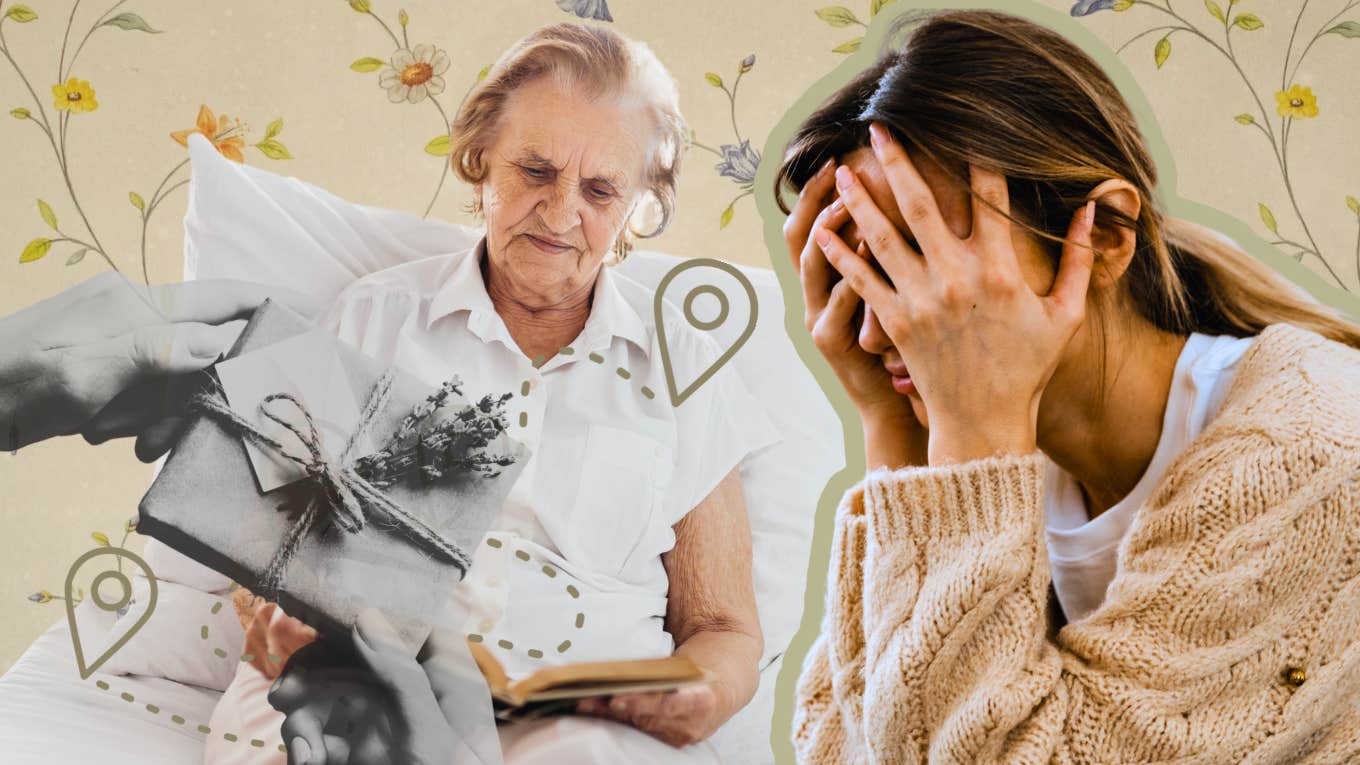Gratitude Is A Faraway Land That My Mother Refuses To Visit
Gratitude makes a major difference in the health of relationships.
 Ron Lach, MART PRODUCTION, ilonakozhevnikova, and.one | Canva
Ron Lach, MART PRODUCTION, ilonakozhevnikova, and.one | Canva You never know what you’re going to get when you visit my mother.
Will she be in a good or bad mood?
Will she be hallucinating, or in a dementia fog?
Or maybe, you’ll catch her in a moment of misguided awareness.
One thing that won’t change, it’s that my mother won’t be thankful, appreciative, or grateful — not for anything or anyone.
The only empathy she’s ever had is for herself. She’s never developed the ability to put herself in someone else’s shoes or to see things from another point of view.
Dying makes one self-centered or, in my mother’s case, even more self-centered. But even when my mother was healthy and vital, other people’s feelings or comfort weren’t things she cared about.
Last Friday, my boyfriend and I drove six hours to my mother’s house.
I brought her a $12 liverwurst. Last year, she ate a lot of liverwurst but her caregivers had trouble finding it, so I ordered it online. Since her food must be ground, I figured she’d even be able to eat it plain or with some soft bread.
Since she adores sweets, especially lemon-flavored ones, I baked her lemon bread using lemons off my tree, and some purchased-for-this-purpose lemon extract.
Instead of going to the hotel, we went straight to my mother’s house. We were tired, sweaty, and tense, but we wanted to catch her while she was still awake.
Big mistake.
As soon as I sat down on the right side of her bed, she turned her head to the left. The caregiver told me my mother’s action was due to her poor hearing and to move to the other side and get on her good ear.
I settled into my seat as my mother turned her head the other way.
Everyone said how excited my mother was about my visit, so she wasn’t angry with me though it felt like she was.
The caregiver gave my mother a cuticle-sized piece of my lemon bread. My mother got a terrible look on her face as if the caregiver had fed her rotten potatoes.
“Yeesh,” my mother’s tongue scraped at the top of her mouth as if to get the lemon breadcrumbs off.
Okay, that didn’t get the response I was expecting.
Then the caregiver fed my mother the liverwurst, but she didn’t like that either.
“This tastes like ug,” my mother repeated.
There was no thank you for thinking of me, or I appreciate you taking the time to bake me something and bringing it up here for me.
I knew not to expect effusive praise, but an acknowledgment would have been nice.
“I guess I’m never going to have a good conversation with anyone,” my mother said. “Everyone is so stupid.”
By everyone, my mother was referring to her family.
We stupid people are the ones who help my mother. We make sure she’s taken care of, visit her so she doesn’t feel abandoned, and advocate for her health.
“No one has anything intelligent to say.”
I knew it was pointless, but I had to point out a couple of truths.
“Well, it’s helpful in conversation to be able to hear, and to have an interest in what other people are saying.”
Suddenly my mother’s hearing was worse than it had been one minute before.
“What did you say? Speak louder!”
I could have screamed my lungs out, but she still wouldn’t hear me.
I don’t have any children and I’ll likely have to rely on my niece (she’s already been alerted,) and my nephews when I’m old and sick.
I hope I never act as if I’m entitled or it’s their duty to take care of me.
I plan to appreciate every kindness and continue to practice gratitude.
Being grateful costs nothing and the benefits are great.
I know it’s difficult to be polite when in pain, but that doesn’t give you free rein to be as nasty, mean, and difficult as you want.
You don’t get a free pass to be abusive.
And no, my mother isn’t having delusions when she’s being mean — that’s her at her most cognizant. Her truest self.
Her neighbor can tell when my mother’s personality is still present if she rolls her eyes.
When we were there, my mother’s eyes were rolling like the river, her voice, when she could get the words out were antagonistic, and her facial expressions showed her utter disgust with her world.
She’s not grateful she gets to live and die in her own home, with her dog and cats sleeping next to her, and all her needs taken care of by the kindest, sweetest caregivers.
If her money runs out, we’ll do what needs to be done so she can continue to have everything she doesn’t give a second thought about having.
As for me, I’ll never stop being grateful for everything from the perfect cup of tea to having people who love me.
Christine Schoenwald is an editor of The Narrative Arc. She has written for The Los Angeles Times, Salon, Next Avenue, and Business Insider.

